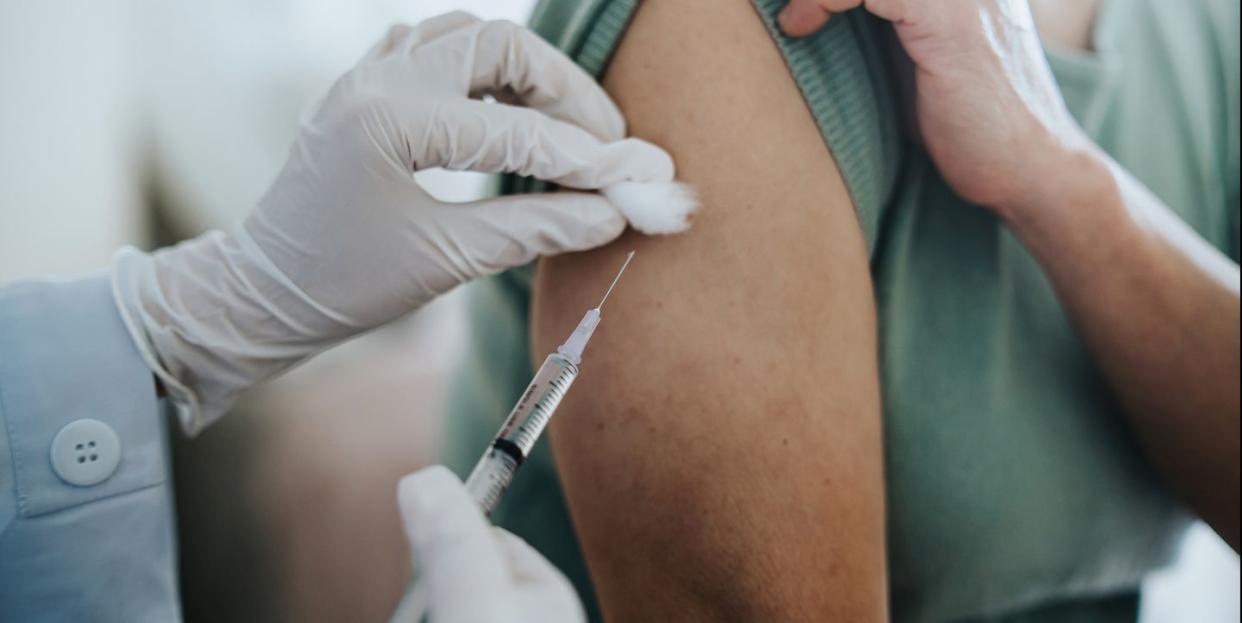A new cancer vaccine could be ready by 2030

A vaccine that aims to improve the immune system's response to cancer - and potentially destroy cancer cells altogether - could be available by the end of the decade, according to scientists behind the successful BioNTech ‘Pfizer’ Covid-19 jab.
Husband and wife team, Uğur Şahin and Özlem Türeci, are the founders of the German vaccine firm working on the exciting medical advancemen, and during the Covid-19 outbreak, the pair partnered with Pfizer to create the messenger RNA (mRNA for short) Covid vaccine. As of 4 September 2022, more than 3.7 billion Pfizer-BioNTech Covid-19 vaccines have been shipped to 180 countries.
Before the pandemic hit, scientists Şahin and Türeci were already focusing on exploring cancer immunotherapies and potential vaccines. However, during the global emergency, the firm put their cancer-related work on hold and turned to developing Covid vaccines.
Throughout this rapid process, the medical team learned how to manufacture mRNA vaccines and gained an understanding into how people's immune systems responded to mRNA - the duo claim that their success with Covid vaccines over the past couple of years has helped with the development of finding a possible future cancer cure.
The firm currently has several vaccine treatments in clinical trials, including one where patients with a cancer diagnosis are given a personalised vaccine, to prompt their immune system and attack their disease.

Prof Türeci, BioNTech’s chief medical officer, told the BBC’s ‘Sunday With Laura Kuenssberg’ how the mRNA technology that was used in their Covid vaccine could one day work to protect the immune system and attack cancer cells too.
“What we have developed over decades for cancer vaccine development has been the tailwind for developing the Covid-19 vaccine, and now the Covid-19 vaccine and our experience in developing it gives back to our cancer work,” Prof Tureci said. “We have learned how to better, faster manufacture vaccines. We have learned in a large number of people how the immune system reacts towards mRNA.”
Using mRNA technology helped pioneer Covid-19 jabs, and as Türeci explains, Covid vaccine technology could potentially be the answer to crack down on cancer.
Charity, Cancer Research UK has already partnered with Vaccitech to trial one of the world’s first therapeutic vaccines for lung cancer. Dr Rupal Mistry, Research Information Manager at the charity, explains to Cosmopolitan UK how a future cancer vaccine would work: "Messenger RNA cancer vaccines are made with bits of 'RNA' that are usually found in cancer cells. They can be injected into the body to make the cells of the immune system better at responding to and destroying cancer cells.
“Just as science was our route out of the pandemic, science is our route to beating cancer. We’re optimistic that, in the future, we will see mRNA technology and other exciting vaccine approaches giving doctors more treatment options to help beat cancer.”
Despite the positive progress, medical professionals are still cautious that there is still not a cure for cancer – at least not just yet. The BioNTech founders admit that there will most likely be hurdles ahead [via The Guardian]. “As scientists we are always hesitant to say we will have a cure for cancer,” Türeci said. “[But] we have a number of breakthroughs and we will continue to work on them.”
The German firm also says it aims to find treatments for bowel cancer, melanoma and other types of cancer, but again stresses that there will be multiple obstacles to overcome before a total cure emerges. The cancer cells that make up tumours can be embedded with many different proteins, for example, which makes it extremely difficult to create a vaccine that targets all of the cancer cells and no healthy tissues.
According to Cancer Research UK, 1 in 2 people in the UK born after 1960 will be diagnosed with some form of cancer during their lifetime.
Dr Mistry adds: “Using vaccines to treat people with cancer is an exciting emerging field, and Cancer Research UK is at the forefront of these developments. We are funding cutting-edge research learning how virus and vaccine technology might activate the immune system against cancer.”
So, there might be a lot of work still to come before a vaccine is announced as safe, effective and ready to use, but we’re thrilled to hear that there are such positive steps being made when it comes to tackling cancer.
You Might Also Like

